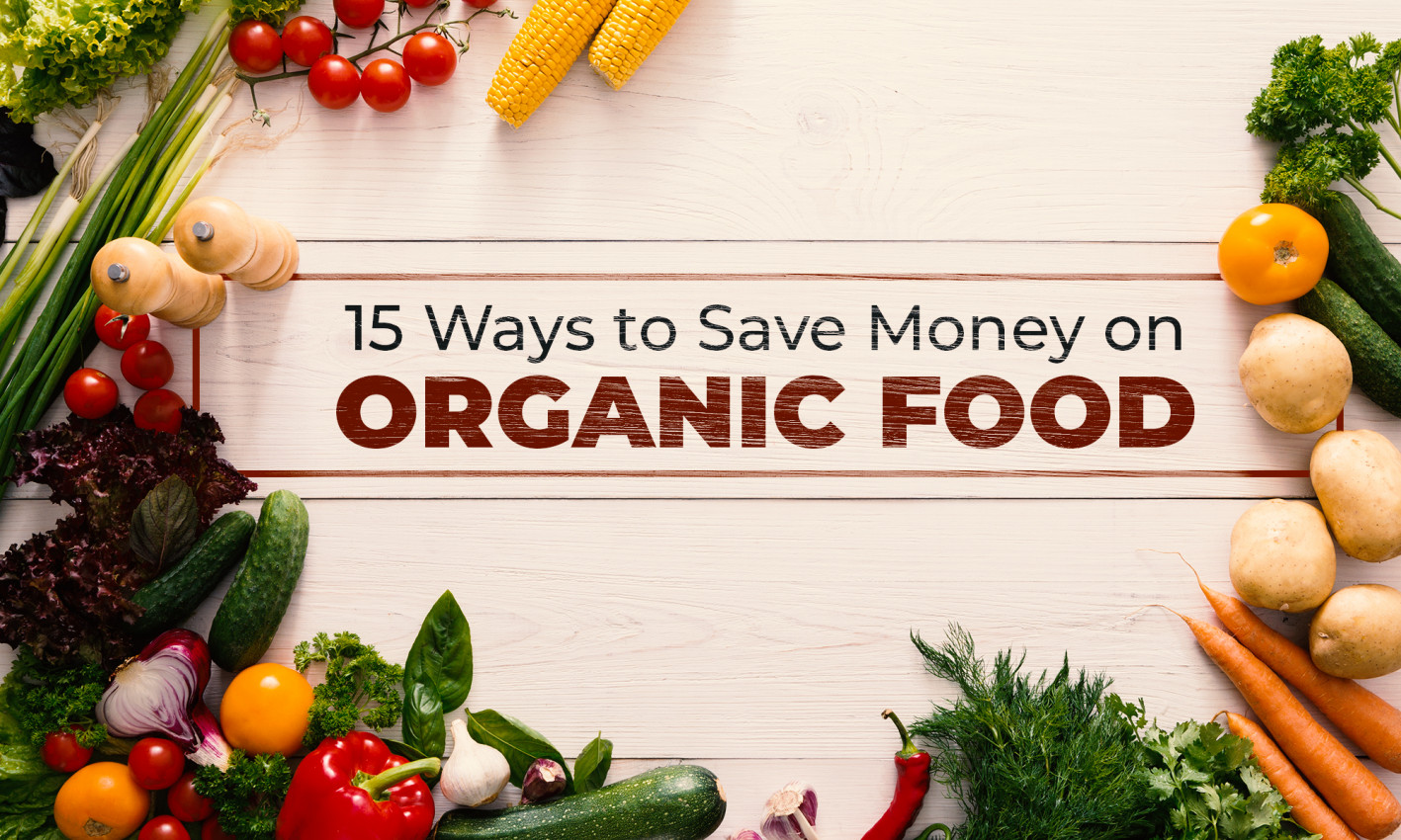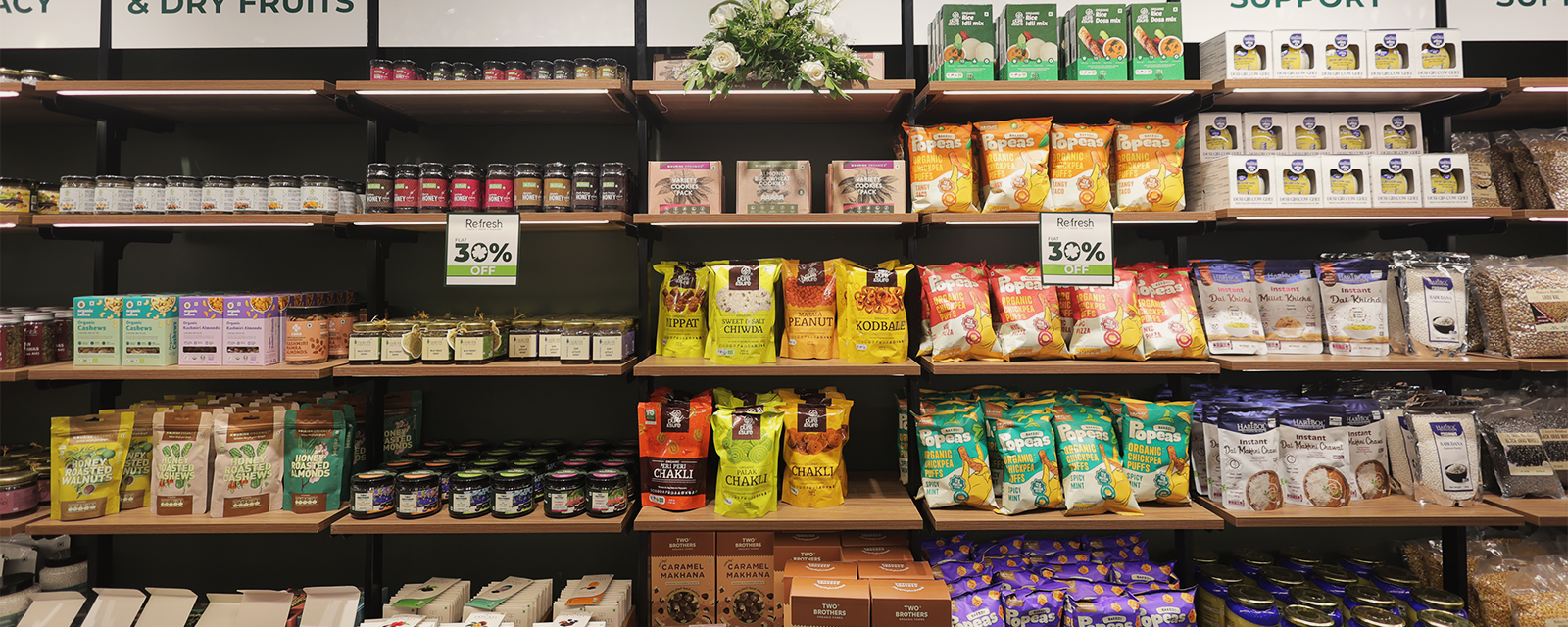
An estimate suggests that around 25 million agricultural workers experience pesticide poisoning every year.
By choosing sustainable farming, you can save the environment from the harmful effects of chemical fertilizers and pesticides and maintain good health.
However, organic food can cost an average of 21% more than conventional produce, but with the right budget strategies, you can enjoy its benefits.
Whether you shop organic food frequently or are just starting to explore organic produce deals, these 15 proven tips will help you save money, make smarter choices, and prioritize your health without sacrificing quality or taste.
Why Organic Food Costs More:
Organic food often costs more because its prices reflect the true value of food production, time, and labour that goes into the process.
Conventional agriculture is typically mass-produced with chemical fertilizers and pesticides that diminish the health benefits and harm the environment.
Organic farmers must also comply with rigorous certification standards like USDA Organic, COSMOS, and India’s NPOP, which prohibit synthetic chemicals and GMOs, and require sustainable soil and pest management practices.
These organic standards demand more labor, time, and costly inspections, and with low yields, the prices are more than conventional produce.
As the demand for organic produce rises, the production and supply will also increase, leading to lower prices in the future.
Ultimately, paying more for organic groceries supports farming systems that prioritize environmental health, food safety, and transparency, ensuring that the hidden costs of food production are not simply shifted onto future generations or the environment.
15 Proven Tips to Save Money on Organic Groceries:
Compare Prices Across Organic Retailers:
Prices for organic groceries can vary according to markets, sellers, and online stores.
Take your time to research organic produce deals and get the best value for your favorite item. Some products are sold at cheaper prices online, while some are better priced in-store.
Smart planning on where to buy will help you get the most from your budget.
Buy From Local Organic Brands:
Many local organic brands have been popping up that offer high-quality products at lower prices than premium brands.
Many stores or marketplaces have budget-friendly organic groceries that often meet or exceed the quality of more expensive alternatives.
Outlet stores like Re:fresh cut out middlemen, giving you great savings on products that may be highly priced by bigger brands.
Buy in Bulk:
When you buy in bulk, you can save money on staples like cereals, grains, spices, rice, and nuts.
Bulk buying reduces packaging waste and lowers the price per kilogram of your shopping bag.
Store your food properly so it doesn’t spoil, and consider splitting larger purchases with friends or family if storage space is limited.
Join the Refresh Privilege Membership:

You can maximize your savings by joining store loyalty programs like Refresh Privilege Membership and enjoy up to 30% off organic shopping.
At just ₹199 per year, you can save up to ₹32,400 annually and choose from 1300+ natural and certified organic products for your family.
By joining the Refresh Privilege Membership (RPM), you unlock exclusive offers, reward points for every purchase, and personalized offers for India’s top organic brands.
Eat Homemade Food:
Urban lifestyle makes it hard to cook at home daily, but most Indians prefer to cook at home, which is a great way to save money.
Processed organic products tend to be expensive and don’t offer the same nutritional benefits as homemade food.
Try simple Indian recipes like dal, sabzi, and batch-cooking homemade rotis to nourish your family affordably.
Eat Seasonally:
Seasonal produce is fresher, cheaper, and often grown locally, which saves transportation costs and carbon footprint.
Renowned Nutritionist Rujuta Diwekar also believes eating seasonally is the best way to boost your immunity and overall health.
Visit local markets to discover the best seasonal fruits and vegetables at their peak flavor and nutrition.
If you’re in Surat, get Fresh Organic fruits and Vegetables delivered to your home. Call +91 7046031871 to order.
Reduce Food Waste:
Wasting food is like throwing away the money you spent on the food. This is also unsustainable.
Plan your portions wisely and store perishable goods properly so they can be repurposed before they spoil.
One great way to save money by food waste reduction is to follow the First In, First Out, where you use the groceries you bought first.
Freeze Your Organic Food:
Freezing allows you to stock up on organic fruits and veggies, and even cooked meals when you buy on sale.
Freeze small items in small, usable batches to avoid waste. Label everything with dates for easy organization and freshness.
Eat Less, But Better:
Eating in smaller portions is always advisable when you’re trying to lose weight or simply want to stay healthy.
Smaller portions can improve your health by focusing on high-quality, nutritious food rather than munching on larger quantities.
Mindful eating stretches your organic grocery budget and lets you spend on food you will actually eat.
Read More: The Power of Eating Portions: How to Eat Less and Live More
Plan Your Meals & Prep Ahead:
Meal planning is one of the best ways to avoid unnecessary shopping trips and impulse buying.
Prepping ingredients like chopping vegetables beforehand or marinating can help save you from food waste during the busy week.
This approach ensures you use what you buy, reducing both waste and expenses.
Buy from Local Farmers & Markets:
Purchasing directly from your local organic farmers ensures freshness and helps you support the community.
Farmers’ market organic often offer competitive prices on organic food compared to supermarkets.
Talking directly to growers also builds trust in the food you consume.
Grow Your Own:
If you have fertile land around you, a small garden, or even a spacious terrace, you can grow herbs, vegetables, or fruits.
Even small pots can save you big since your produce will be recurring, fresh, chemical-free, and highly satisfying.
Plants like basil, mint, spinach, and tomatoes thrive in limited spaces.
Proper Storage Techniques:
Learn to store different fruits and vegetables properly to extend their shelf life.
Keep ethylene-producing fruits separate, put leafy greens in paper towels, and consider vacuum sealing for longer storage.
Proper storage means fewer spoiled items and fewer grocery shopping trips in a month.
Pickling & Fermenting:
Pickling is a traditional Indiana practice of extending the shelf life of food items and saving them to consume over a long time. You can buy organic pickles to get more flavor and nutrients.
Fermenting can allow your food to sit fresh for 2 to 3 days, reducing the waste and supplying essential prebiotics.
Start with simple recipes like pickles or homemade jams. Always follow safety guidelines to prevent contamination.
Buy from Reputed Organic Marketplaces:

Reputed and trusted marketplaces like Refreshyourlife offer authentic, certified organic products at fair prices.
Shopping from a trusted source ensures that you get what you pay for, real, clean food without hidden chemicals.
Visit Re:fresh to choose from 1300+ natural and organic products from India’s top certified organic brands.
Frequently Asked Questions:
How to save money on organic food in India?
Shop at local farmers' markets, buy in bulk, choose seasonal produce, and look for authentic certification marks like ‘Jaivik Bharat’ or FSSAI to ensure value and quality.
How to save money on organic food?
Plan meals, buy from local farmers and local brands, join Refresh Privilege Membership, and grow your herbs or veggies at home.
Is it worth spending money on organic food?
Organic food reduces exposure to pesticides and supports environmentally friendly farming, making it a worthwhile investment for health and sustainability.
Why is organic food more expensive?
Organic food costs more due to labor-intensive practices, certification fees, lower yields, and the absence of government subsidies that conventional farming often receives.
What should I grow at home to save money?
Grow high-ROI herbs and vegetables like coriander, mint, basil, spinach, tomatoes, and chilies - these thrive in small spaces and offer frequent harvests.
The Bottom Line
Choosing organic helps reduce pesticide exposure and supports a healthier environment for everyone.
With these 25 proven tips, you can enjoy nutritious, eco-friendly food without overspending.
Explore more from Naturopedia:
Top 10 Genuine Organic Products Brands in India You Can Trust in 2025
Why does Organic food cost more than regular food?
The Story of India’s First Organic Farm: Ambrosia Organic Farm